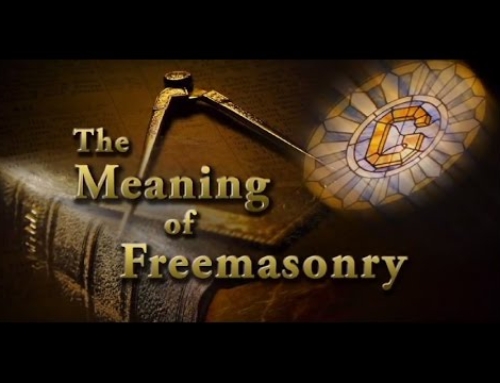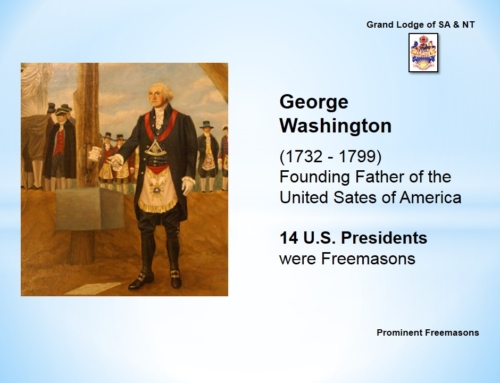What Is Freemasonry?
Introduction
An international and widely recognised fraternity, Freemasonry provides its members with the opportunity to embark on an amazing life-long journey of learning, self-discovery and of deepening personal moral strength and compassion. Most Masons find the experience both challenging and rewarding and above all, enormously enjoyable.
Whilst dating back several centuries no one knows exactly when Freemasonry, as we know it today, started.
However, the Craft on which it was founded – that of stonemasons – dates back thousands of years – recent examples of which can be seen everywhere around the world, in castles, churches, cathedrals, and other historic buildings.
The strict rules and guidelines that were used to train and develop young men into supreme masters of the stonemason’s craft are used in Freemasonry – but now, in metaphorical form – to develop the character, values and spirit of the individual.
For Freemasonry expounds the art of self-discovery and continuous self-improvement; of using human virtues as templates, enabling men gradually to fashion, sculpt and craft themselves into better individuals from the inner person and hopefully, to become even more helpful, worthy and useful members of society.
Freemasonry is one of the world’s oldest secular fraternal societies. The following information is intended to explain Freemasonry as it is practised under the Grand Lodge of Antient, Free and Accepted Masons of South Australia and Northern Territory, which administers Lodges of Freemasons in South Australia and the Northern Territory, in each other State of Australia and in many places overseas.
The explanation may correct some misconceptions.
Freemasonry is a society of men concerned with moral and spiritual values. Its members are taught its precepts by a series of ritual dramas, which follow ancient forms, and use stonemasons’ customs and tools as allegorical guides.
The Essential Qualification for Membership
The essential qualification for admission into and continuing membership is a belief in a Supreme Being.
Membership is open to men of any race or religion who can fulfil this essential qualification and who are of good repute.
Freemasonry and Religion
Freemasonry is not a religion, nor is it a substitute for religion. Its essential qualification opens it to men of many religions and it expects them to continue to follow their own faith. It does not allow religion to be discussed at its meeting.
The Three Great Principles
For many years Freemasons have followed three great principles:
Brotherly Love – Every true Freemason will show tolerance and respect for the opinions of others and behave with kindness and understanding to his fellow creatures.
Relief – Freemasons are taught to practise charity and to care, not only for their own, but also for the community as a whole, both by charitable giving, and by voluntary efforts and works as individuals.
Truth – Freemasons strive for truth, requiring high moral standards and aiming to achieve them in their own lives.
Freemasons believe that these principles represent a way of achieving higher standards in life.
Charity
From its earliest days, Freemasonry has been concerned with the care of orphans, the sick and the aged.
This work continues today. In addition, large sums are given to national, state and local charities.
Freemasonry and Society
Freemasonry demands from its members a respect for the law of the country in which a man works and lives.
Its principles do not in any way conflict with its members’ duties as citizens, but should strengthen them in fulfilling their public and private responsibilities.
The use by a Freemason of his membership to promote his own or anyone else’s business, professional or personal interests is condemned, and is contrary to the conditions on which he sought admission to Freemasonry.
His duty as a citizen must always prevail over any obligation to other Freemasons, and any attempt to shield a Freemason who as acted dishonourably or unlawfully is contrary to this prime duty.
Freemasonry and Politics
Freemasonry is non-political, and the discussion of politics at Masonic meetings is forbidden.
Conclusion
A Freemason is encouraged to do his duty first to his God (by whatever name He is known) through his faith and religious practice; and then, without detriment to his family and those dependent on him, to his neighbour through charity and service.
None of these ideas is exclusively Masonic, but all should be universally acceptable. Freemasons are expected to follow them.
Why Do People Join?
People become Freemasons for a variety of reasons, some as the result of family tradition, others upon the introduction of a friend or out of a curiosity to know what it is all about.
Those who become active members and who grow in Freemasonry do so principally because they enjoy it. They enjoy the challenges and fellowship that Freemasonry offers. There is more to it, however, than just enjoyment.
Participation in the dramatic presentation of moral lessons and in the working of a lodge provides a member with a unique opportunity to learn more about himself and encourages him to live in such a way that he will always be in search of becoming a better man, not better than someone else but better than he himself would otherwise be and therefore an exemplary member of society.
Each Freemason is required to learn and show humility through initiation. Then, by progression through a series of degrees he gains insight into increasingly complex moral and philosophical concepts, and accepts a variety of challenges and responsibilities which are both stimulating and rewarding. The structure and working of the Lodge and the sequence of ceremonial events, which are usually followed by social gatherings, offer members a framework for companionship, teamwork, character development and enjoyment of shared experiences.
If you are ready to have a chat about Freemasonry and You. Click hear to get in touch




